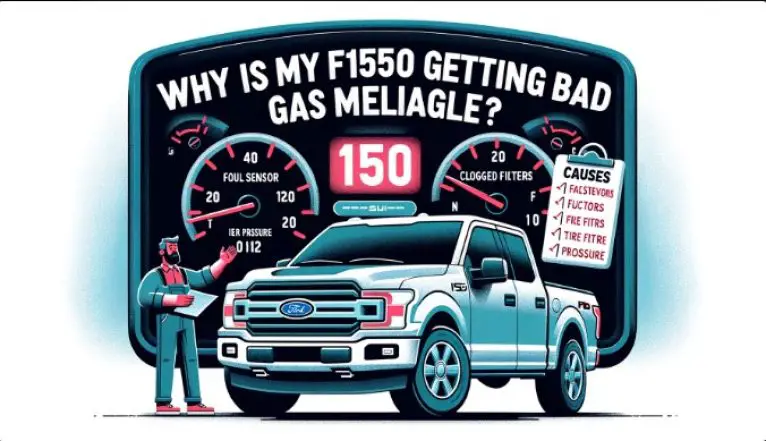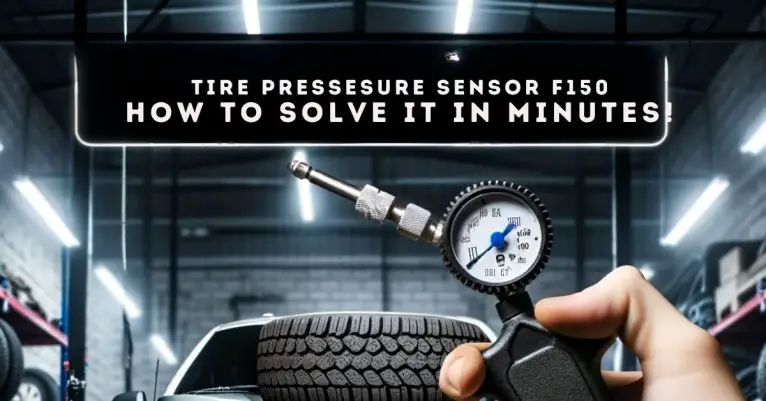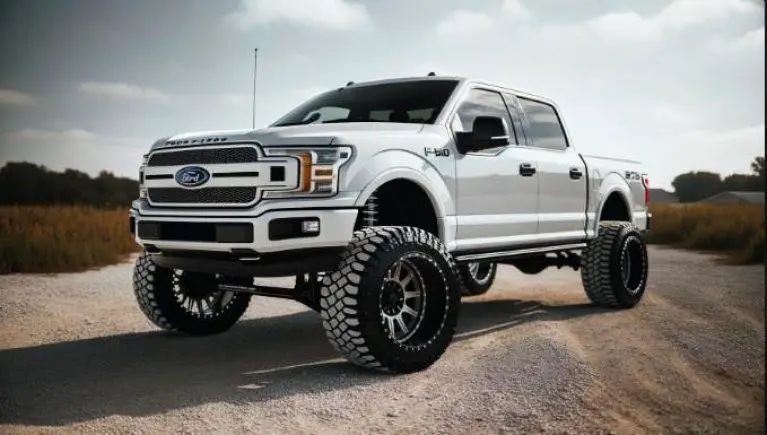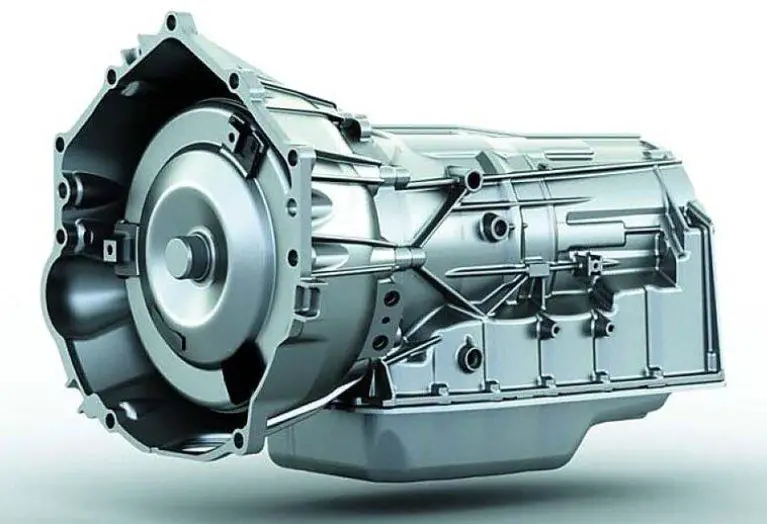How Big Of A Camper Can An F150 Ecoboost Pull
Last Updated on by David Jon
In this informative piece, we unravel a common query among Ford owners – the towing capacity of an F150 Ecoboost, specifically in regards to campers. As esteemed authorities in vehicle maintenance, we aim to equip DIY enthusiasts, mechanics, and Ford aficionados with comprehensive insights into the limitations and functionality of this popular model. With a balanced blend of both technical expertise and understandable jargon, we delve into this practical inquiry, empowering you to make even more out of your Ford ownership experience.

The F150 Ecoboost Explained
Overview of the F150 Ecoboost
We start with the engine, the heart, and the core of a vehicle that propels it forward. When it comes to Ford’s F150 Ecoboost, we are dealing with an impressive powerhouse. Utilizing turbocharging and direct fuel injection, it delivers performance and efficiency unlike any other. What sets the F150 Ecoboost apart is the use of the twin-turbocharged “Ecoboost” engine. This unique engine design combines power and efficiency, providing all the strength of a traditional V8 engine with the fuel economy of a smaller engine.
Special Features of the F150 Ecoboost
Let not our focus be solely limited to its engine capabilities. The F150 Ecoboost also boasts a variety of special features that enhance its performance. Such include an advanced 10-speed transmission offering improved acceleration and performance compared to traditional 6-speed transmissions. The F150 Ecoboost also comes with the Auto Start-Stop Technology, which helps reduce fuel use and emissions during city driving.
Different Versions of the F150 Ecoboost
The F150 Ecoboost does not only come in one version but various, each suited to different needs and preferences. Among the options available are the 2.7-liter V6, the 3.5-liter V6, and the High-Output 3.5-liter V6. Each of these offers varying degrees of power, torque, and fuel economy, facilitating a range of choice for different user needs.
Understanding Towing Capacity
What is Towing Capacity
Before delving into the F150 Ecoboost’s towing capacity, it’s essential to understand the concept of towing capacity itself. Simplified, towing capacity refers to the maximum weight load a vehicle can safely tow without the risk of damaging the vehicle or compromising safety.
How Towing Capacity is Measured
Towing capacity is measured in pounds and is usually provided by the vehicle manufacturer. It is determined through a variety of rigorous testing scenarios to ensure that the vehicle can safely and effectively handle the specified weight behind it.
Factors Affecting Towing Capacity
Towing capacity is not an arbitrary number and is influenced by various factors. Such include the vehicle’s power, the type and setup of the towing hitch, the vehicle’s brakes, the strength of the frame, and the weight of the vehicle itself. All these together form the vehicles towing capacity.
The Towing Capacity of F150 Ecoboost
Towing Capacity Range
Now, coming to the core question – How big of a camper can an F150 Ecoboost pull? The F150 Ecoboost, depending on the model, can tow between up to 5,000 to 14,000 pounds. This impressive range makes it suitable for most non-commercial towing needs, be it a small trailer or a large camper.
How to Determine Your F150’s Towing Capacity
To determine your F150 Ecoboost’s exact towing capacity, we recommend referring to your vehicle’s owner’s manual. It will provide you with the most accurate and detailed information reflective of your specific model and configuration.
Factors Influencing the F150’s Towing Capacity
The F150 Ecoboost’s towing capacity, similar to other vehicles, can be influenced by several factors. Key among these are the vehicle’s configuration, the installed towing equipment, and the vehicle payload or the weight of passengers and cargo in the F150 Ecoboost.

Choosing a Camper: Weight Considerations
Understanding Camper Weight
A significant factor to consider when planning to tow a camper is understanding its weight. The weight of a camper includes not only its “dry weight” or unladen weight but also the “loaded weight”. The loaded weight comprises additional elements like supplies, water, gas, and personal belongings.
Weight of Common Campers
Common camper types and their average weight are: Popup Campers (~2,500lbs), Hybrid Trailers (~4,000lbs), Travel Trailers (~5,000lbs), and Fifth-Wheel Trailers (~10,000lbs). These numbers are average estimates and can vary significantly based on the camper’s size and content.
Extra Weight Considerifications
It’s crucial to consider the weight of passengers, fuel, and any extra cargo in your F150 Ecoboost when determining how big of a camper your vehicle can tow. Always remember: The total of the weight of your F150 Ecoboost, the weight of the camper, passengers, and additional cargo should not exceed the Gross Combined Weight Rating (GCWR) stated in your owner’s manual.
Towing Safety Tips
Safety Preparations Before Towing
Before starting your tow, ensure your vehicle is in good condition. Check your tire pressure, ensure your brake lights are working, and confirm that the towing hitch is secure. It’s also prudent to practice towing in a safe area before hitting the road.
Towing Techniques and Tips
When towing, remember to drive slower than usual, maintain larger following distances, and avoid sudden stops and starts. Avoid sharp turns and always use the appropriate gear for uphill or downhill travel.
After-Towing Inspections and Maintenance
Following towing, always inspect your vehicle for any potential damage or unusual wear. Look for any signs of brake or transmission trouble, and consider a professional inspection if you tow frequently.
Pros and Cons of Towing a Camper with F150 Ecoboost
Benefits of Using F150 Ecoboost for Towing
There are numerous benefits to using the F150 Ecoboost for towing. Thanks to its potent Ecoboost engine and advanced transmission, it provides reliable and efficient towing capacity. The F150 also boasts a comfortable and spacious cabin, making it well-suited for long hauls or camping trips.
Potential Drawbacks
Potential drawbacks of using an F150 Ecoboost for towing include increased fuel consumption and increased wear and tear on the vehicle, especially if the maximum towing capacity is frequently reached.
Encountering and Resolving Problems
As with any towing, problems may arise when towing with an F150 Ecoboost. These can range from mechanical issues to tricky driving conditions. Most issues can be resolved by paying heed to the vehicle’s maintenance schedule, undertaking regular check-ups, and having an understanding of safe towing practices.
Evaluating Impact on Vehcicle Performance
Changes in Fuel Efficiency
Towing can significantly impact the fuel efficiency of your F150 Ecoboost due to the increased load on the engine. The exact impact depends on factors such as the weight of the camper, the terrain, and how the vehicle is driven.
Effects on Engine and Transmission
Towing can put extra strain on both the engine and the transmission. Over time, this may lead to accelerated wear and tear, particularly if the vehicle is regularly used for towing near its maximum capacity.
Expected Wear and Tear
The added strain brought about by towing can hasten the need for maintenance and potentially even repairs over time. Regular checkups and services are instrumental in mitigating this risk.
Accessories to Enhance Towing with F150 Ecoboost
Tow Bars and Hitches
Appropriate tow bars and hitches are essential for safe and effective towing. There are different types available, and the best one for you depends on your specific towing needs.
Mirrors and Lighting Accessories
Mirrors and lighting accessories are essential for maintaining visibility when towing. Extended side mirrors, for example, can provide a better view of the trailer or camper, and additional brake lights can improve visibility to other vehicles on the road.
Suspension and Brake Upgrades
Upgrading your vehicle’s suspension and brakes can improve its towing performance and safety. Air suspension systems can enhance stability, and high-performance brake pads and rotors can provide better stopping power.
Real-Life Experiences Towing Campers with F150 Ecoboost
Stories from F150 Ecoboost Owners
Real-life experiences can give valuable insight into the practicality of towing with the F150 Ecoboost. Numerous owners have shared stories of successful long-distance trips, praising the vehicle’s towing stability, power, and ease of use.
Lessons Learned and Tips from Real Experiences
Key lessons from real-life experiences include regularly checking and adjusting tire pressure, keeping a slower driving pace, making wider turns, and allowing extra distance for stopping. Regular maintenance and servicing have also proven to be of immense value in ensuring longevity and reliable performance.
Maintenance Tips for Your F150 Ecoboost
Routine Maintenance for Towing
Regular oil changes and check-ups of the key components such as the cooling system, brakes, and tires are critical for reliable performance when towing. Check the camper’s tire pressure and connections before each trip.
Post-Towing Checks and Repairs
After towing, it’s essential to inspect your vehicle. Look for signs of wear or damage, and perform any necessary maintenance or repairs before the next tow.
Long-Term Maintenance Tips for Maximum Performance
For maximum longevity and performance, maintain a regular schedule for rotating tires, changing filters, and checking fluid levels. Keeping an eye out for unusual noises or vibrations can help catch potential issues before they become serious.
When it comes to pulling campers, the F150 Ecoboost proves to be a reliable and efficient performer. While towing may require extra care, preparation, and maintenance, owners find the F150 Ecoboost to be more than up for the task. Tow safely, maintain your vehicle, and your F150 Ecoboost is sure to provide the power and performance required for successful towing.




